Will today’s design graduates be relevant tomorrow? Are they truly relevant today? A new Universal Design Education Charter, developed at GloW-DESIGN’s ReDesignEd Educators Forum in Singapore, sets out a framework for the future.

Shashi Caan and Ian Pirie speaking at the GloW-DESIGN ReDesignEd Educators Forum in Singapore
November 2nd, 2018
How does design education need to be redesigned for new and changing realities? High-level design educators from a variety of disciplines, nationalities, genders and generations gathered in Singapore in late October for a forum initiated and organised by independent thought leadership platform GloW-DESIGN (Globally We Design).
At host venue LASALLE College of the Arts, the ReDesignEd Educators Forum participants spent three days (24-26 October 2018) probing ideas about the future of design education in the twenty-first century before arriving at a new Universal Design Education Charter – a document of common aspiration for design education in a changed and continually changing context of design practice.
The Charter is the product of the participants’ collective sense of responsibility to face the rapid change being felt around the world. Its purpose is to serve as a global, collective and aspirational framework and filter through which design education and curricula are measured, valued and contextualised. A list of Forum participants can be viewed at the Glow-DESIGN website. The group comprised 36 individuals from 23 countries, who teach at 22 institutions.
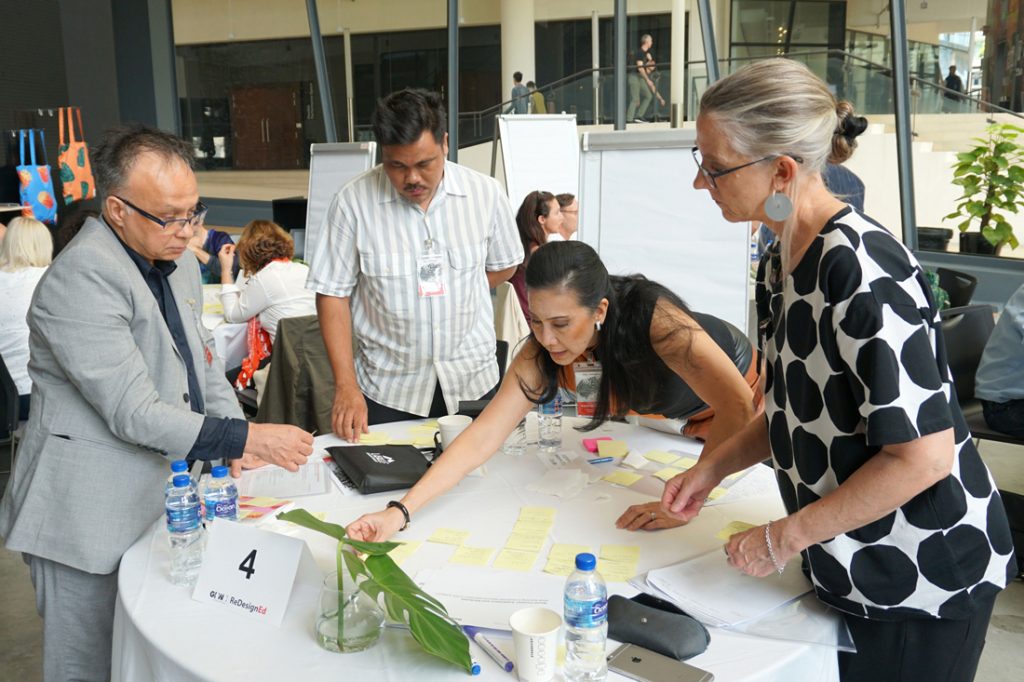
Achieving the outcome of the Charter involved an intensive three days of collective analysis and debate. The Forum opened with each participant sharing insights about their school and their concerns around design education – for example, the need for self-learning and trans-disciplinary learning, and the need for the development of a perspective for looking at the world in an era when levels of self-employment are high.
Setting the scene for the forum discussions that would follow, was an introductory presentation by GloW-DESIGN’s Founder Shashi Caan (who is also the Founding Partner of design studio The Collective, former Chair of Interiors at Parsons School of Design, and an INDE.Awards Jury member) and Ian Pirie (ReDesignEd Educators Forum Chairperson and Emeritus Professor of Design at the University of Edinburgh).
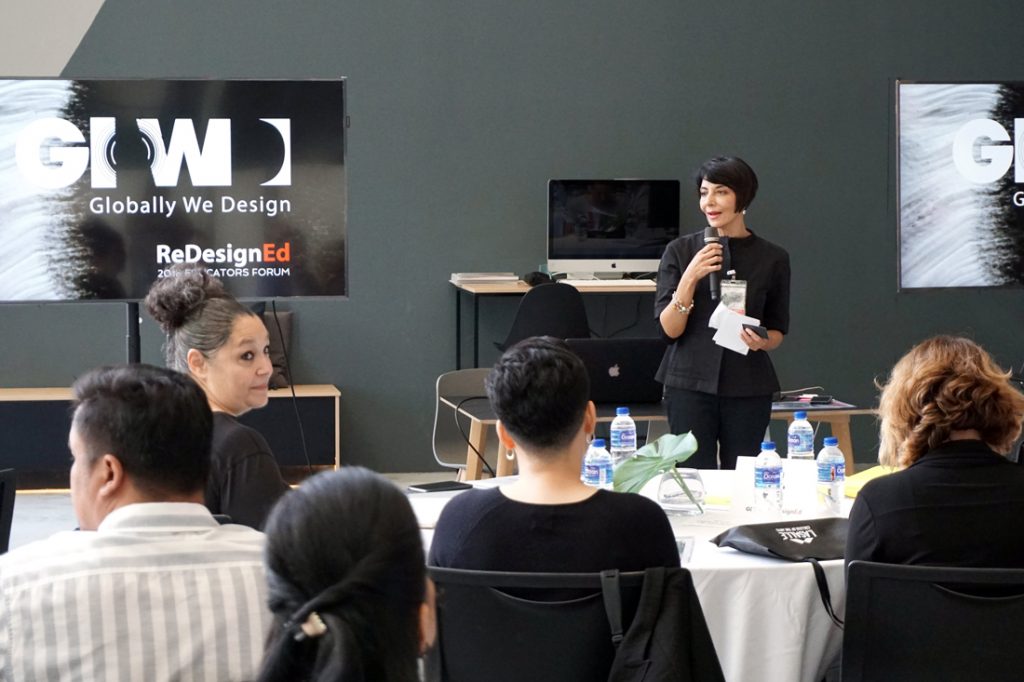
Caan and Pirie brought focus to just how rapidly the world is changing with a range of statistics and facts about ageing, urbanisation, inequality, access to resources, technological advancement, AI, sustainability, changing job markets, and shifting skill demands. Skills with rising demand include analytical thinking, active learning, creativity, technology design, critical thinking, complex problem solving, leadership, emotional intelligence and systems analysis, shared Caan. “What does that mean for design education, and bridging the gap between education and future work?” she asked.
“This forum is about probing the positioning and validation of design in the world,” she affirmed. Added Pirie, “We need to be explicit about how design can add value to society.” Educational approaches and content have remained largely unchanged since the mid-twentieth century, and the use of graduate designers is still not perceived as a core and essential requirement, he suggested, drawing attention to the current state of things. “Design is not driven or led by the type of research that gives science its credibility,” he said.
Designers need to be seen as key players in helping to solve the world’s big issues, he insisted. An education in design should be capable of routinely producing future leaders, and designers should be active in creating a healthy, sustainable and inclusive economy. The development of the Universal Design Education Charter during the forum was seen as a necessary step – a blueprint for design education that will have relevance to Industry 4.0.
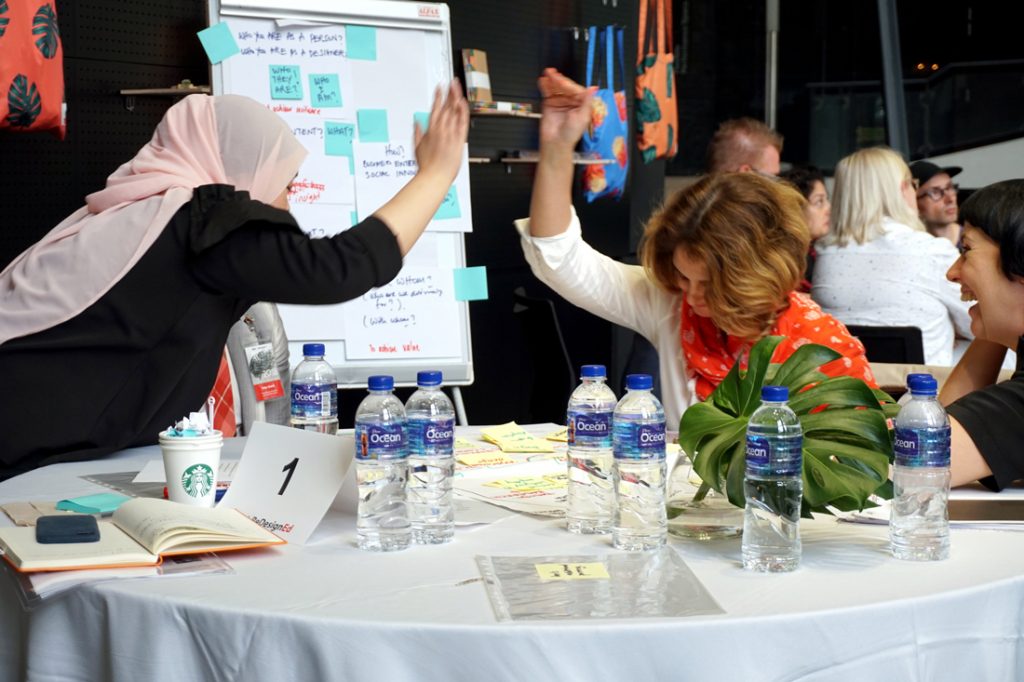
Three breakout discussion sessions allowed participants to debate key aspects of design education – such as what a designer should know and understand, expectations with regard to skills and technology, the learning that is needed beyond the subject of design, and what designers should be accountable for. The presentation of group findings was followed by whole-group debates.
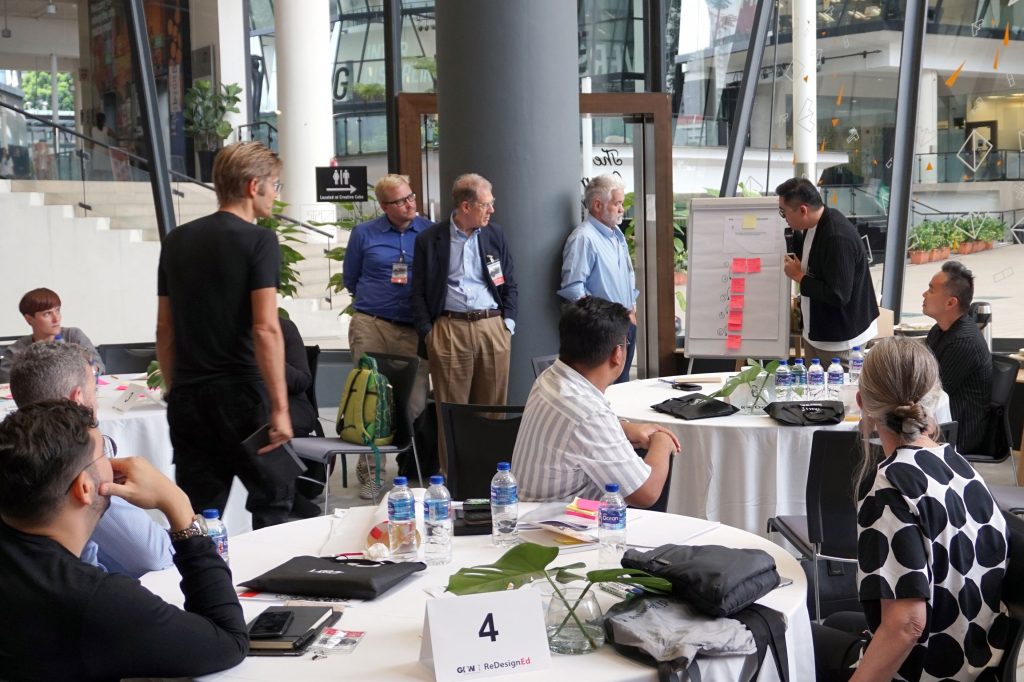
Findings were adapted by a charter-writing team into a document modelled on the UN Declaration of Human Rights. I was pleased to contribute to the finessing of the final wording and read the Charter to the forum participants.
The articles comprising the Universal Design Education Charter address the key issues of continuous culture change, knowledge and skills (education), sustainability, technology, acknowledgement (certification) and the betterment of all life as design’s primary concern. It was accepted by the majority of forum participants, and will be released publicly on 29 November 2018 by GloW-DESIGN after further refinements.
The forum at LASALLE is the second such event organised by GloW-DESIGN, after a forum in Edinburgh in 2017. Plans are underway for the 2019 edition. Stay tuned!
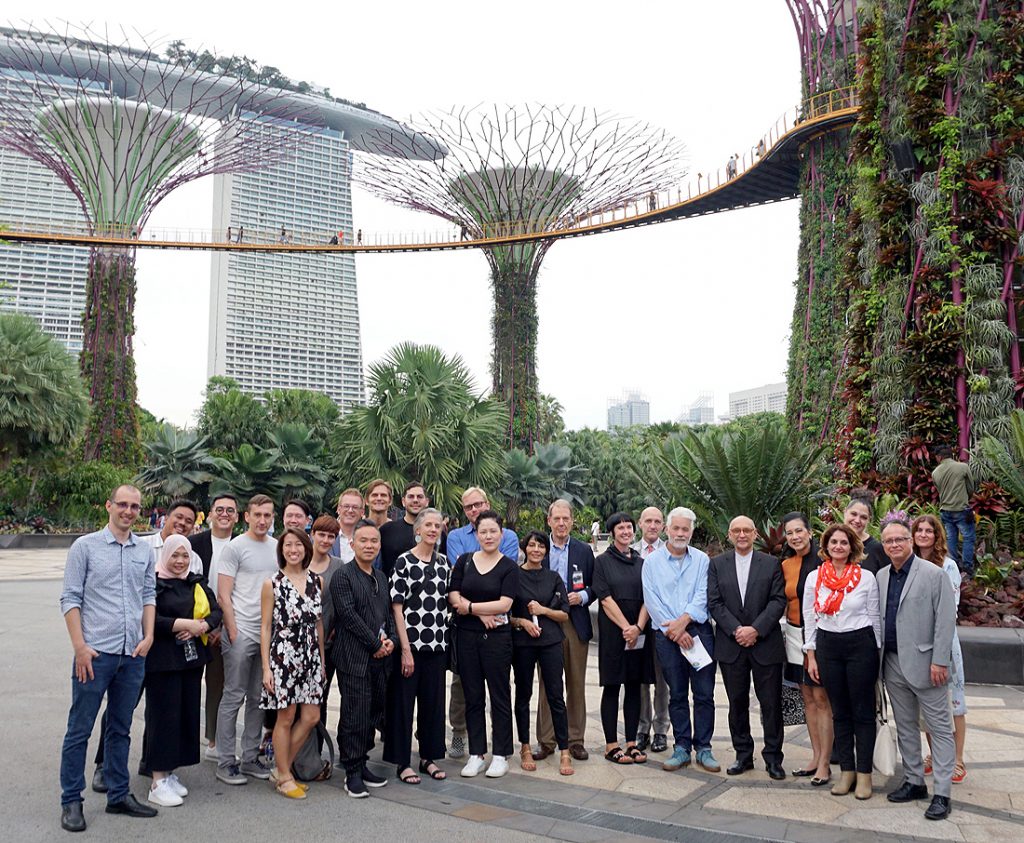
The participants visit Gardens by the Bay
INDESIGN is on instagram
Follow @indesignlive
A searchable and comprehensive guide for specifying leading products and their suppliers
Keep up to date with the latest and greatest from our industry BFF's!
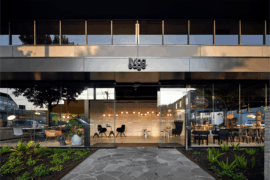
For Aidan Mawhinney, the secret ingredient to Living Edge’s success “comes down to people, product and place.” As the brand celebrates a significant 25-year milestone, it’s that commitment to authentic, sustainable design – and the people behind it all – that continues to anchor its legacy.

CDK Stone’s Natasha Stengos takes us through its Alexandria Selection Centre, where stone choice becomes a sensory experience – from curated spaces, crafted details and a colour-organised selection floor.

In Cremorne, Foolscap Studio has completed Forum – a co-working space that finds inspiration in some Classical archetypes.

From global icons to local heroes, these international names are ready to cast their eye over the region’s top award program!
The internet never sleeps! Here's the stuff you might have missed

A stunning indoor space reveals artistry in every aspect, from outlook to underfoot.

IF Architecture crafts Baker Bleu Cremorne into a refined, sustainable bakery and café where industrial design meets artisanal warmth.